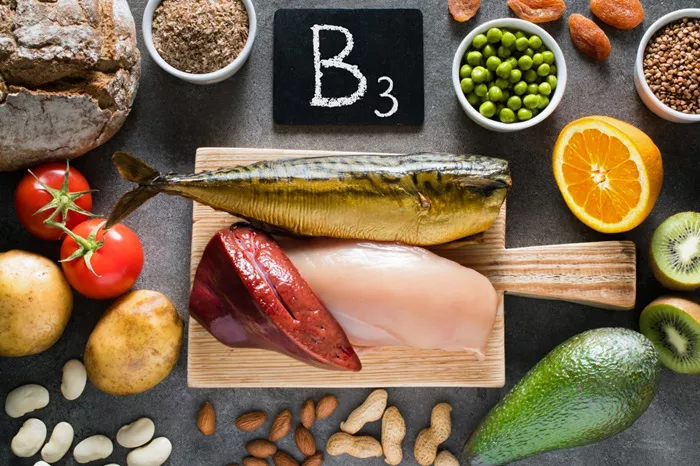Kiwis, long celebrated for their high vitamin C content, may be a more effective way to boost immune health than relying on vitamin C supplements, experts say. A growing body of research suggests that eating two kiwis a day can fulfill the recommended vitamin C intake, making supplements unnecessary for many adults.
Kiwis: A Powerhouse of Vitamin C
Vitamin C is an essential antioxidant that plays a key role in immune function, wound healing, and the absorption of iron. A serving of two green kiwis, or one SunGold kiwi, contains roughly 120 mg of vitamin C—enough to meet the daily needs for most adults, which is 90 mg for men and 75 mg for women. This makes kiwis an excellent, natural alternative to vitamin C supplements.
A recent study published in the Foods journal concluded that consuming two kiwis a day could replace the need for vitamin C supplements, offering a natural source of the vitamin that the body can absorb just as effectively as from a pill. The study found that the natural sugars in kiwis are not high enough to pose long-term health risks.
“If people like the taste of kiwis or are curious about incorporating them into their diet, they shouldn’t hesitate to eat them regularly, unless they have an allergy,” said Emma Laing, PhD, RDN, director of dietetics at the University of Georgia. Laing was not involved in the study but emphasizes the health benefits of whole foods like kiwis.
Vitamin C Needs and Absorption
Men aged 19 and older are recommended to consume 90 mg of vitamin C per day, while women in the same age group need 75 mg. Pregnant and breastfeeding women, as well as smokers, have higher vitamin C requirements. Despite the popularity of vitamin C supplements, however, experts agree that there is limited evidence supporting the widespread use of these supplements for immune health.
A 2016 review found that while taking 200 mg of vitamin C daily might reduce the severity and duration of cold symptoms, it does not decrease the likelihood of catching a cold. Furthermore, the body’s ability to absorb vitamin C diminishes once tissues become saturated, making megadoses of the vitamin less effective.
“The kidneys work to excrete any excess vitamin C that the body doesn’t use,” Laing explained. “Taking a daily vitamin C supplement in excess of what your body requires does not provide additional health benefits, as the surplus is simply flushed out.”
The Benefits of Eating Kiwis
While vitamin C supplements have their place, experts recommend getting nutrients from food sources whenever possible. Kiwis not only provide vitamin C but also contain other beneficial compounds, such as antioxidants, potassium, and fiber, that supplements cannot replicate. A study published last year found that eating two kiwis daily can help relieve constipation, likely due to the fruit’s fiber content.
“Kiwis offer a comprehensive array of nutrients that a single supplement can’t match,” said Laing. “They’re a source of both vitamin C and other essential compounds, which together contribute to overall health.”
Kiwis have more vitamin C by weight than oranges, with two kiwis providing more than the recommended daily intake. However, while kiwis are a great source of vitamin C, they alone are not a cure-all for immune health.
“Exercise level, hydration, stress management, and other lifestyle factors also play a significant role in immune function,” noted Dawn Earnesty, PhD, RDN, a registered dietitian and senior extension specialist at Michigan State University Extension.
A Holistic Approach to Immunity
While kiwis can be a valuable part of a healthy diet, experts emphasize the importance of a holistic approach to supporting immunity. Along with consuming adequate nutrients, regular exercise, sufficient sleep, and managing stress are crucial for maintaining a strong immune system and reducing inflammation.
“Eating kiwis can contribute to immunity, but it’s just one piece of the puzzle,” Earnesty said. “Without other factors in place, such as proper hydration, rest, and exercise, immunity may still not reach its full potential.”
Conclusion
Kiwis are more than just a delicious fruit; they are a powerful source of vitamin C and other essential nutrients that can help support immune health. Experts agree that consuming two kiwis a day is a natural, effective alternative to vitamin C supplements, offering additional health benefits like fiber and antioxidants. While kiwis can boost vitamin C intake, a well-rounded approach to health that includes proper diet, exercise, and sleep remains essential for optimal immune function.
Related Topics
Is Steak for Breakfast the New Trend for Women? Experts Weigh In
Moothies: A Healthy Choice or Hidden Calorie Trap?
The Truth About Probiotics and Weight Loss: What the Science Really Says



































